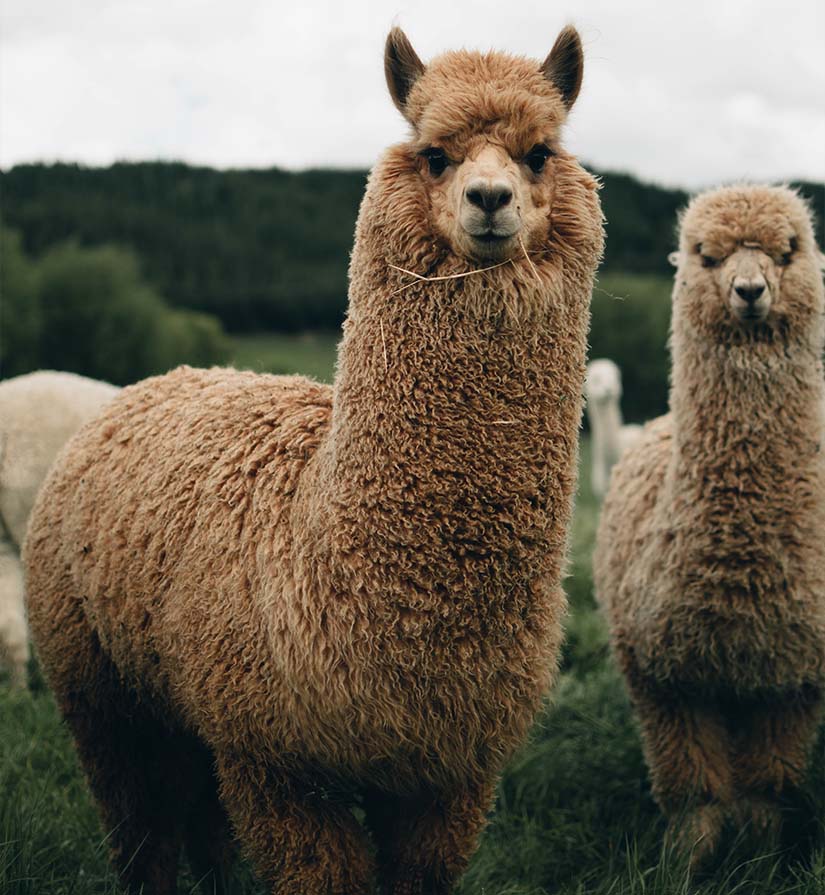A fiber of natural origin, derived from the hair of alpacas. It is a fiber that promotes animal welfare through ethical practices in its production.




It can be light or heavy, depending on how it is woven. It is also a soft, durable, and luxurious fiber, due essentially to its feel and production process.
Although similar to other wools, alpaca wool is warmer, non-spiny, and has no lanolin, making it a hypoallergenic raw material.
The llama fiber has been compared to the alpaca fiber as both are hollow, however, the diameter of the hollow core of the llama fiber is larger than that of the alpaca fiber. This means that llama fiber has a better insulation capacity and also breathes better in hot climates, storing heat better in cold weather.
Alpaca fiber is naturally water-repellent and difficult to inflame. Some types of alpaca produce a spongier and softer fiber, with natural crimpings that make the yarn more elastic and ideal for knitting. Those with fewer crimpings, on the other hand, are best suited for making fabrics.
Alpaca wool is light, soft, smooth, naturally hypoallergenic, and biodegradable. It acts as an insulator that keeps the body temperature at normal levels, this is due to the cavity or air void that each of the fibers has.